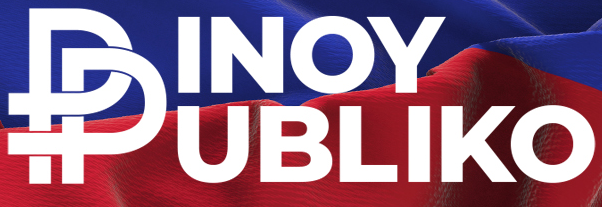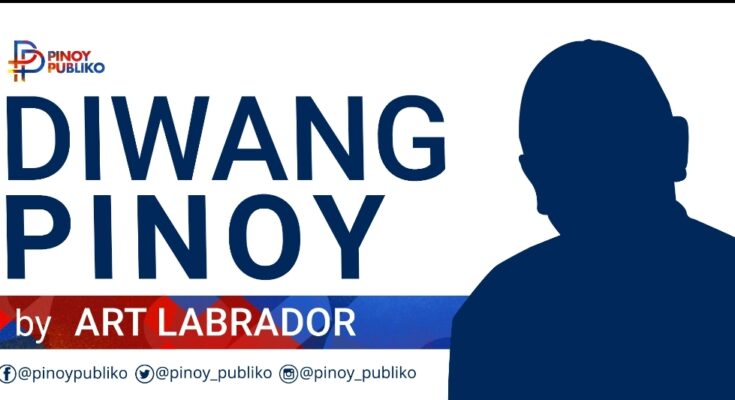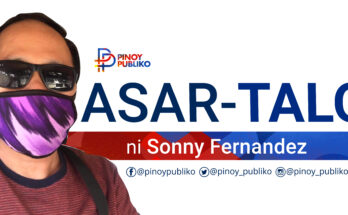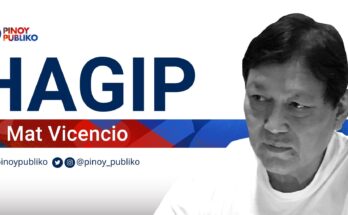CAN we sustain national development and progress without leaders who can expound and communicate principles and ideas in a systematic way not only to state officials but to the people at large as well? Or have we become contented with just having popular leaders getting elected to positions. And that’s all what democracy means to us?
Fearless stubbornness and fixation on popular issues may rouse up enough mass support to encourage government managers to implement programs and projects boldly against odds at certain periods of time, but the need for continuity beyond administration term requires more than passing the baton to an heir apparent despite survey results.
We basically mimic the American-type of democracy although the Marcos dictatorship under martial law caused the dissolution of the two-party system that used to make voters passionately either Nacionalista or Liberal.
Marcos wanted a dominant party, the Kilusang Bagong Lipunan, to rule instead to support what he wanted to implement. The Nacionalista Party and the Liberal Party remained but were emasculated by changes of allegiance in their ranks mostly for political survival especially in their local turfs.
By his pronouncements, Marcos intended the KBL to be ideological. He failed. Or the KBL ranks simply did not care enough. Only the Marcos Loyalists apparently became more “ideological, but have been appearing more attached to personalities than a set of fundamental principles that they are supposed to adhere to.
The anti-Marcos frame of mind and efforts during martial law that continued after the EDSA revolt remained the core of the so-called “yellow” mindset that has been exploited by both CPP and social democratic ideologues in various degrees and at different time opportunities. The CPP in doing so was able to expand its parliamentary struggle through the partylists.
The social democrats, on the other hand, have been active in government since the time of President Cory Aquino but there have been no consistent ideological effort on their part that was felt widely with distinction, unlike in the case of the obviously CPP-inspired partylists that were mouthing and following political lines that were suggestive of the ideology of the CPP.
Just before he died in October 2017, the late Romeo Jocson Intengan, S.J., who can be considered the most influential ideologue of the social democrats since Marcos time, was a member of the Philippine Council on Foreign Relations (PCFR) and the National Security Cluster, as part of a joint effort to promote a comprehensive national security framework for the country.
They produced a joint document endorsed by the National Security Adviser Hermogenes C. Esperon, which has made a significant contribution to the Government’s National Security Strategy.
The best source of a set of values, principles and vision that can serve as a core of organized ideas for ideological leadership is the National Security Policy or the more detailed National Security Strategy of every administration.
While these documents have appeared more as distinct interpretations by every incumbent administration of the present condition and needs of the country for a particular period of time, still they can serve as basis for ideological leadership that is conscious, inclusive and patriotic.
The National Security Policy under President Benigno Aquino III titled, “Securing the gains of democracy,” was indicative of the “yellow” mindset. While the said NSP included nothing very different from other NSP’s it showed the irresistible use of personal names to directly or indirectly link them to values and principles on which the NSP stand.
Under the section titled, “Cultural Cohesiveness,” the names of Senator Benigno Aquino and Corazon Aquino were mentioned, together with Lapu-lapu, Rizal, Mabini and Jose Abad Santos, as the “most recent manifestations” of the values of “freedom and human dignity of a person.”
In the case of the Aquinos it was their actions that merited their being associated with the values, but it took others to abstract and preach the corresponding mental frame.
It is much better that national leaders themselves can discuss principles and vision for the country intelligently, and better, if they themselves can write about them for productive debate on issues affecting the country.
Implementing managers should not be left alone putting logic and rationale to what the government is doing. And relying on the support of vloggers and social media influencers has its limits that only party organizations with ground troops can transcend.
Ideological leadership in a democracy depends on democratic parties, not only on individual candidates, competing under the Constitution and the laws with a conscious and deliberate effort to pursue long-term programs of inclusive development.
For national leaders it is not enough to say what they are against. It is more important to explain and sell what they stand for. Alone without a legitimate democratic party that would be like a super avenger tiptoeing on the borderline of dictatorship.
Para sa reaksyon o komento at tanong mag-email sa admin@pinoypubliko.com





